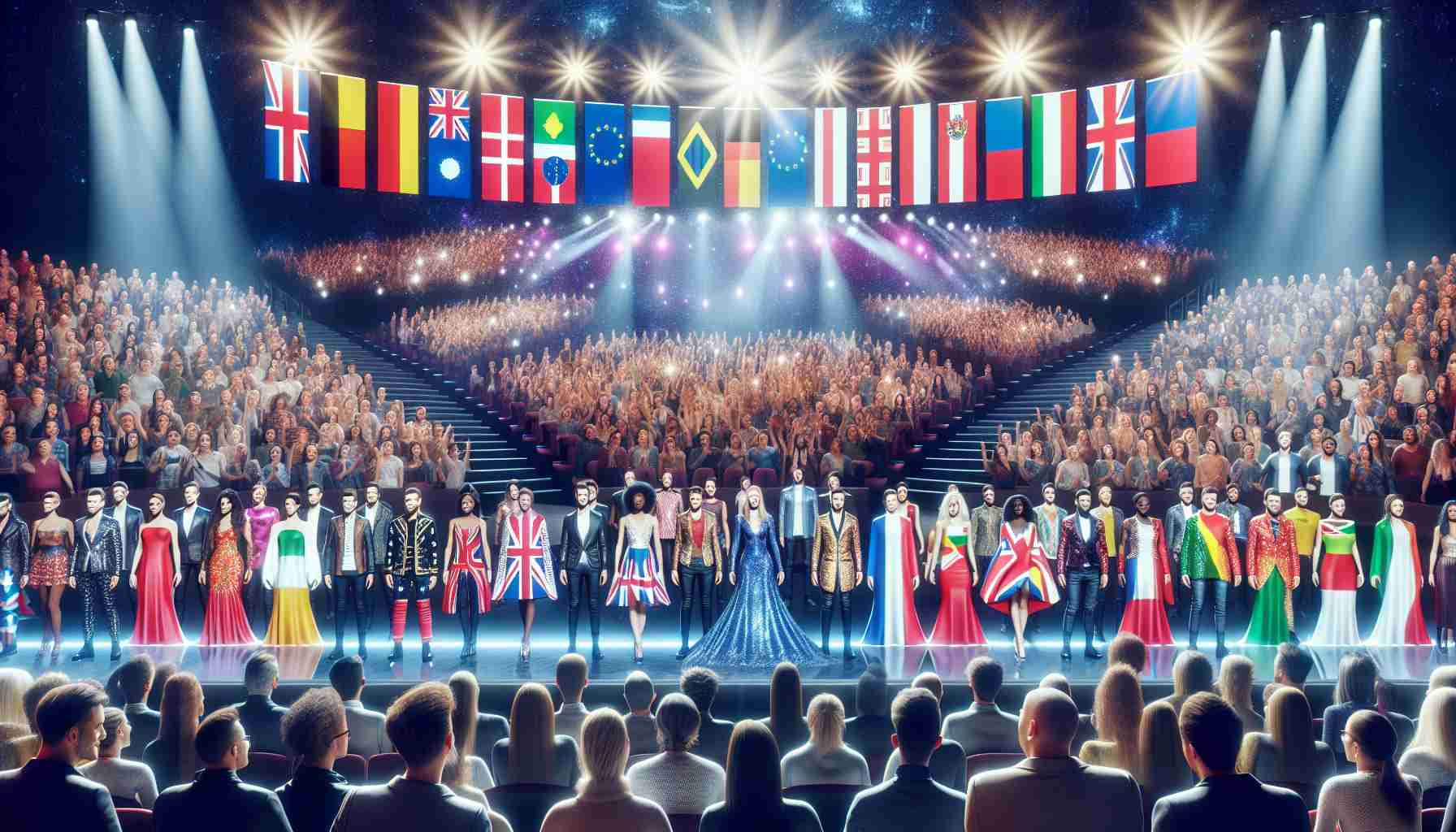- The 2025 Eurovision Contest will be held in Basel, Switzerland from May 13 to 17, featuring 37 countries.
- Belgium’s Red Sebastian is notable for his techno-rave anthem “Strobe Lights,” which is currently favored by bookmakers.
- France’s entry, performed by Louane, will debut during a unique rugby event on March 15, adding anticipation and flair.
- Luxembourg pays tribute to Eurovision icon France Gall, aiming to evoke nostalgia with its entry.
- Russia remains excluded from the competition due to its ongoing penalty since the 2022 Ukraine conflict.
- This year’s contest highlights the unifying power of music, blending diverse cultures and performances.
As Eurovision fever begins its ascent, anticipation bubbles for the 2025 contest in Basel, Switzerland. From May 13 to 17, the spotlight will shine on the stage where 37 countries compete for glory and the chance to take home the coveted trophy. Already, seven songs beckon from the shadows of the spotlight, each promising unique rhythms and narratives.
Belgium’s Red Sebastian stands out, captivating bookmakers with a techno-rave anthem that pulses to the title “Strobe Lights,” suggesting a medley of vibrant beats and energetic flair. Meanwhile, France has placed its hopes in Louane, whose entry awaits its grand reveal in a most unexpected venue: during the halftime of a rugby clash between France and Scotland on March 15. The choice to debut her song amid roaring crowds hints at the ambitious spectacle that Louane is likely to deliver.
Elsewhere, neighboring Luxembourg offers homage to Eurovision legend France Gall, a nod to the past that may resonate with nostalgia-tinged chords. However, Russia remains outside the Eurovision embrace, still seated in the penalty box since its exclusion in 2022 after the Ukraine conflict.
This year’s Eurovision promises a blend of the unexpected and familiar, a journey through soundscapes shaped by varied cultures. As audiences count down to the main event, which nation’s melody will soar above the rest remains a tantalizing mystery.
In a contest where history meets modernity, the grand takeaway is the unifying power of music—transforming differences into harmony, one dazzling performance at a time.
Unveiling Secrets: What to Expect from Eurovision 2025 in Basel!
Anticipating Eurovision 2025: What You Need to Know
As excitement builds for Eurovision 2025 in Basel, Switzerland, let’s explore additional important insights and background information not covered in the main article. This year’s competition will take place from May 13 to 17, with 37 countries vying for the top prize through memorable performances and innovative music.
1. Impact of Location: Basel, Switzerland
Basel, known for its cultural richness and vibrant art scene, sets the stage for this international event. Hosting Eurovision is expected to bring significant tourism and economic benefits to the region. The influx of visitors often boosts local businesses, from hospitality to retail, providing a welcome financial injection. For more about what Basel has to offer, visit the Swiss Tourism site.
2. The Role of Technology in Eurovision
Technological advancements continue to shape Eurovision’s presentation each year. From augmented reality effects enhancing performances to high-definition streaming bringing shows to global audiences, technology changes how people experience these musical acts. This adoption of technology aligns with broader trends towards digital transformation in entertainment, offering innovative engagement methods for viewers worldwide.
3. The Ongoing Impact of Russia’s Exclusion
The absence of Russia, a historically strong contestant, continues to stir political and social implications within the Eurovision community. Russia’s exclusion due to geopolitical tensions underscores how international events can reflect broader global conflicts and the intersection of politics and cultural exchanges. This absence notably shifts competitive dynamics and audience sentiment.
4. Cultural Exchanges Through Music
One of Eurovision’s core strengths is its ability to bridge cultural divides through music. Featuring artists from various backgrounds and musical genres, Eurovision serves as a platform for cultural expression and mutual understanding. This aspect contributes to intercultural dialogue and showcases diversity, enhancing appreciation of global musical traditions.
5. The Business of Eurovision
Beyond its cultural significance, Eurovision also has a considerable business aspect, impacting the music industry by launching careers and increasing music sales. Artists see a boost in exposure, often reaching new audiences far beyond their home countries. This phenomenon highlights the symbiotic relationship between major events and artist branding.
Key Questions and Considerations:
– How can Eurovision further leverage technology to enhance viewership?
With ongoing technological innovations, Eurovision could explore more immersive experiences through virtual reality or continue improving its global streaming capabilities to engage younger audiences.
– What are the long-term effects of hosting Eurovision for a city like Basel?
Hosting such a significant event can establish a legacy of cultural significance, attract future tourists, and contribute positively to the city’s international reputation.
– In what ways can Eurovision maintain its spirit of unity amidst the exclusion of countries due to political reasons?
Encouraging dialogue and mutual support within its community, while promoting non-political aspects of music and culture, can help preserve Eurovision’s core values of harmony and inclusivity.
For comprehensive insights into international cultural events, visit the UK Department for Culture website.
By embracing the evolving music scene and recognizing its broader impacts, Eurovision 2025 promises to be not just an entertaining spectacle, but a powerful celebration of cultural connectivity and innovation.
